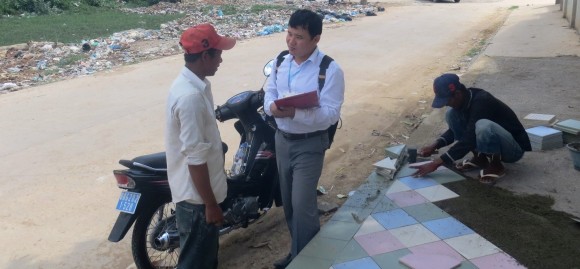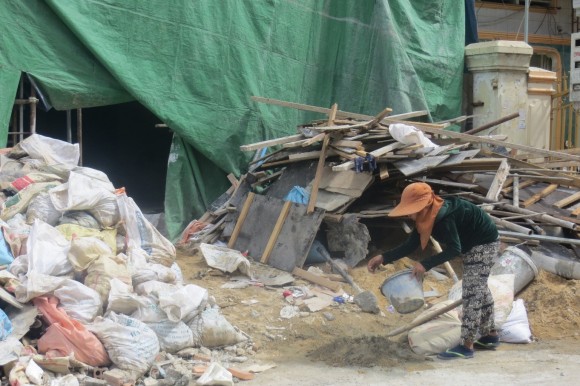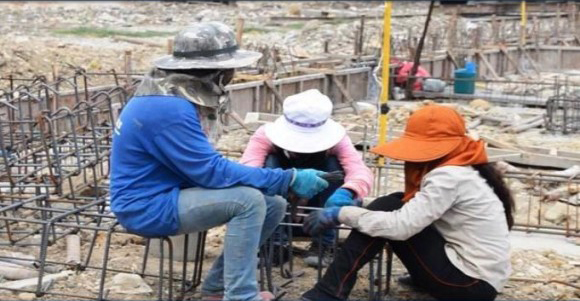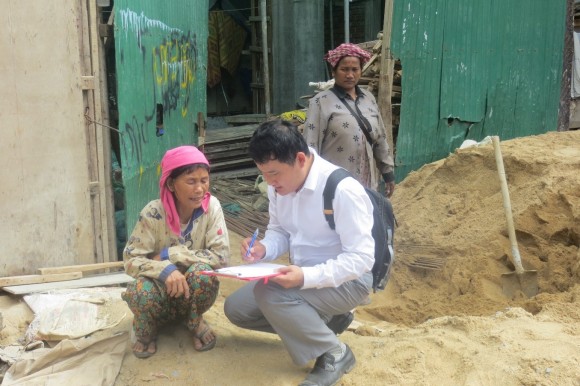ACTED has been very active in promoting workers’ rights in various sectors of the Cambodian economy, especially for vulnerable women.
Latest projects in the country have focused on improving working conditions in the tourism and the entertainment sectors for the most marginalized workers. Recently, ACTED decided to undertake a comprehensive study looking into labor law compliance in the capital’s construction sector.

Poor working conditions and difficult access to healthcare
Indeed, the construction sector has experienced a sharp growth these past few years, becoming one of the pillars of the Cambodian economy and a main employment sector for Cambodians. But ACTED’s research shows that this fast growth has not been accompanied by the establishment of safe and decent working conditions.

The main findings of this study show that workers of the construction sector in Phnom Penh face many challenges linked to the lack of labour law compliance. Firstly, among all surveyed construction sites, it was noticed that construction workers tend to work 58 to 70 hours a week without any opportunity to take days off, which exceeds the legal limit fixed by the Cambodian Labour law. This increases the risks of accidents, stress and health problems for workers. Moreover, the study highlights a clear lack of contribution by employers of the construction sector to the National Social Security Fund (NSSF), resulting in very poor access to healthcare protection for the workers.
Moreover, the study clearly shows a wide gap in terms of labour law compliance depending on the type and the size of the construction sites: construction workers from large commercial construction sites are usually working under better safety and legal conditions than their counterparts working on smaller, non-commercial sites, such as residential or religious building sites.

Female workers: A marginalized group within an already vulnerable one
In addition, the study focused on the particular challenges faced by female construction workers and the risks of gender-based violence. It is estimated that as many as one out of three construction workers in Cambodia are women, yet all studies including ACTED’s show that they are highly discriminated against in terms of equal pay, social protection and safe working conditions.
Indeed, the study revealed that all female construction workers were consistently paid less than their male colleagues for the same work, by between 4.88$ to 7.33$ per day. This amounts to female construction workers earning around 17% less than their male counterparts. Another main issue is the increased risk of gender-based violence due to the lack of adequate and safe washing and toilet facilities on construction sites, as well as poor site security.
There are crazy men (illegal drug users) with knives who will not care if you are old, a weak woman or sick. They will threaten you to take your money or rape you without any consideration;

Looking for sustainable solutions
To address these challenges, ACTED is seeking to develop projects aiming to educate employers on the importance of improving their labour law compliance and offering decent and safe working conditions for all their employees. Outreach activities to construction workers are also a priority, as most construction workers are unaware of what they are entitled to in terms of contract and benefits.
All activities should take into account the specific needs of female construction workers, with a focus on wage equality and fight against gender-based violence. In this aim, ACTED is an active member of the Taskforce Working Group on female construction workers, a platform that gathers NGOs and other actors of the Cambodian civil society in order to develop a coherent and collective strategy on improving working conditions for female workers.